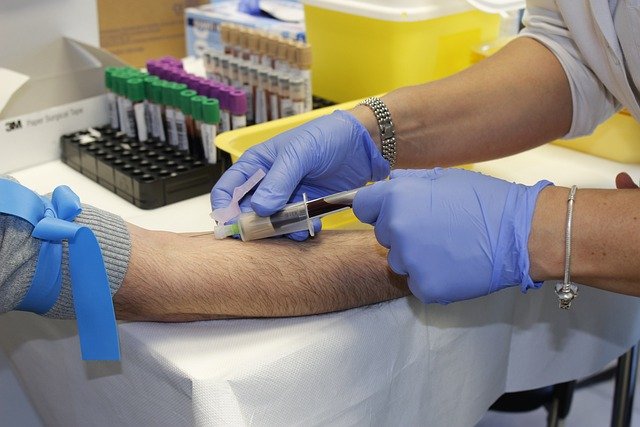Could a Simple Blood Test Reveal What’s Really Going On Inside?
Most people don’t think twice about routine blood work — until the numbers start raising questions. But that small vial can offer early clues about inflammation, organ function, and more. Are you paying attention? Blood tests are a fundamental part of healthcare, providing critical insights into a person’s overall health. Often requested by doctors as part of routine check-ups or to diagnose specific conditions, these tests analyze a sample of blood to evaluate various components such as red and white blood cells, platelets, and plasma. Understanding the results of a blood test can help individuals and healthcare providers make informed decisions about treatment and lifestyle changes.

What is a blood test and why is it important?
A blood test is a laboratory analysis performed on a blood sample to evaluate various aspects of a person’s health. It’s an essential diagnostic tool that provides valuable information about the functioning of organs, the presence of infections, and potential health risks. Blood tests are important because they can detect issues before symptoms appear, allowing for early intervention and prevention of more serious health problems.
What are the most common types of blood tests?
There are several types of blood tests, each designed to assess different aspects of health:
-
Complete Blood Count (CBC): Measures red and white blood cells, platelets, and hemoglobin.
-
Lipid Panel: Checks cholesterol levels and assesses heart disease risk.
-
Metabolic Panel: Evaluates kidney and liver function, electrolyte balance, and blood sugar levels.
-
Thyroid Function Tests: Assesses the health of the thyroid gland.
-
Hemoglobin A1C: Measures average blood sugar levels over the past three months.
Each of these tests provides specific insights into various bodily functions and can help diagnose or monitor a wide range of health conditions.
How should you prepare for a blood test?
Proper preparation is crucial for accurate blood test results. Here are some general guidelines:
-
Fast for 8-12 hours before the test if required (especially for lipid panels and glucose tests).
-
Stay hydrated, unless instructed otherwise.
-
Inform your healthcare provider about any medications or supplements you’re taking.
-
Avoid strenuous exercise 24 hours before the test.
-
Wear comfortable clothing with easy access to your arms.
Always follow the specific instructions provided by your healthcare provider, as preparation may vary depending on the type of blood test.
What do blood test results mean?
Interpreting blood test results can be complex, as they often involve a range of numbers and medical terminology. Generally, results are compared to reference ranges considered normal for your age, gender, and other factors. Values outside these ranges may indicate potential health issues. However, it’s important to note that slight deviations don’t always signify a problem, and results should be interpreted in the context of your overall health and symptoms.
What unique insights can blood tests provide?
In the United States, blood tests are increasingly being used to detect early signs of diseases like cancer, Alzheimer’s, and autoimmune disorders. Advanced testing techniques can now identify specific biomarkers associated with these conditions, potentially allowing for earlier diagnosis and treatment. Additionally, genetic testing through blood samples is becoming more common, offering insights into inherited health risks and personalized treatment options.
How much do blood tests typically cost in the United States?
The cost of blood tests in the United States can vary widely depending on the type of test, location, and insurance coverage. Here’s a general overview of some common blood tests and their estimated costs:
| Test Type | Provider | Estimated Cost (without insurance) |
|---|---|---|
| Complete Blood Count (CBC) | LabCorp | $30 - $60 |
| Lipid Panel | Quest Diagnostics | $50 - $100 |
| Metabolic Panel | Any Lab Test Now | $40 - $80 |
| Thyroid Function Test | Walgreens | $60 - $120 |
| Hemoglobin A1C | CVS MinuteClinic | $50 - $90 |
Prices, rates, or cost estimates mentioned in this article are based on the latest available information but may change over time. Independent research is advised before making financial decisions.
Blood tests are a powerful tool in managing and maintaining health. They provide a window into the complex workings of the human body, offering valuable insights that can guide medical decisions and lifestyle choices. From routine check-ups to specialized diagnostics, blood tests play a crucial role in modern healthcare. By understanding the types of tests available, how to prepare for them, and what the results mean, individuals can take a more active role in their health management. As technology advances, blood tests are likely to become even more sophisticated, offering increasingly detailed and personalized health information.
This article is for informational purposes only and should not be considered medical advice. Please consult a qualified healthcare professional for personalized guidance and treatment.




